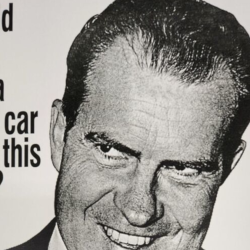Brand purpose is one of the most hotly contested topics in marketing. But most of the debate is limited to whether it is an effective strategy. That’s interesting but perhaps the more valuable question is how can brand purpose be effective?
And here we can turn to the world of behavioural science for some guidance. In particular, a study from Benedikt Herrmann, a psychologist at the University of Nottingham. It’s a slightly complicated experiment but bear with me, it’s worth it.
In 2008 Herrmann recruited a range of participants across 16 countries and split them into groups of four. Crucially, the participants were anonymous and kept separate from each other.
Herrmann gave each player 20 tokens and asked them how many tokens they wanted to keep and how many they wanted to contribute to the group. The psychologist incentivised generosity by turning every token added to the group pot into 1.6 tokens. Once everyone had privately made their decision, the communal tokens were shared equally between the group.
This type of experiment, known as a public goods game, creates a dilemma. The best overall strategy is for everyone to donate all their tokens to the communal pot. If all 80 tokens are pooled they would be upgraded to 128 tokens and, when shared equally, each player would receive 32.
In contrast, the best individual strategy is to donate zilch and hope everyone else contributes. In that scenario, the freeloader ends up with 44 tokens.
Herrmann, however, added an extra step to this game. Once the tokens had been shared he selected some participants, who we’ll call the arbitrators, and told them what the others had contributed. The arbitrators were then given the power to punish others: by sacrificing a single token they could reduce another player’s stash by three tokens.
There were two findings.
First, arbitrators tend to punish freeloaders. But, second, in a more surprising twist, the most community-spirited were also punished. In 15 of the 16 countries studied, the arbitrators punished those who donated significantly more than them. In 3 countries (Greece, Oman, Saudi Arabia) the uber generous players were punished as much as the freeloaders.
Why are the most generous players punished?
It seems that being generous creates status, but that status is a positional good. That means that if one person is particularly generous it’s resented by others as they appear relatively stingy. And that resentment is strong enough that arbitrators will sacrifice their own tokens to enact a punishment.
According to the author, David Robson, this is particularly true if:
We think that the other person was only looking for those reputational benefits, rather than acting out of a genuine interest in others, since it may suggest a cunning and manipulative personality more generally.
The brand application
Herrmann’s findings are useful as they explain the latest research on brand purpose.
Peter Field recently conducted an analysis of 380 entries to the IPA effectiveness awards. He found that on average the campaigns that communicated a brand purpose were less effective than those that didn’t. Specifically, purpose campaigns generated 1.1 very large business effects on average, compared to 1.6 effects for the non-purpose campaigns. That ties in with Herrmann’s finding that people often feel resentful towards those who trumpet their ethics.
However, Field’s research also unearthed a few nuances. There are specific situations where having a brand purpose is highly effective; most notably employee satisfaction. Field found that 23% of non-purpose campaigns had a “collateral effect” on employee satisfaction. In contrast, purpose campaigns were far more effective: 59% of strong purpose campaigns and 47% of weak brand purpose campaigns delivered a “collateral effect”.
The superior performance of brand purpose on employee satisfaction ties in with Herrmann’s research. Remember that an audience often feels resentment towards those who broadcast their ethics, because it makes them feel relatively lower status. This danger is absent when it comes to employees — after all it’s their company that is gaining the status. It’s the competitors who look relatively stingy, while the employee basks in the reflected glory.
The success of brand purpose among employees hints at an opportunity when communicating with customers. Think about Waitrose. When you’ve bought your shopping you’re given a green token which you can use to vote for the charity that will receive Waitrose’s monthly donation. By making the customer responsible for where the donation goes, shoppers feel a boost to their status.
Compare that to a supermarket who blandly announces that they’re making a donation. In that scenario the customer is passive — merely a bystander to a brand’s benevolence.

How can you apply these findings?
None of these arguments suggest that you shouldn’t have an ethical core to your business. If you want to improve the world you should do just that, regardless of any research.
However, you should be reticent when it comes to broadcasting those ethics. Unless you can make your customer the hero, your efforts might backfire.
Of course, that doesn’t mean you shouldn’t communicate your brand purpose at all. It’s just you should be targeted in the telling. Focus your messages on your employees. Make sure they know the positive difference you’re making in the world. That’s an effective way of boosting their morale and retaining staff in a competitive marketplace.































